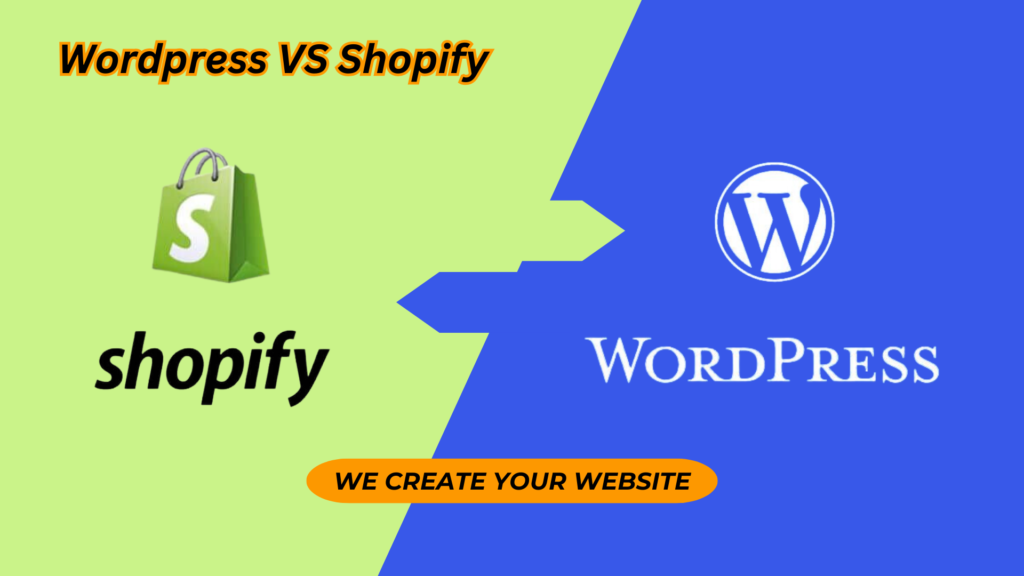While building eCommerce stores, two platforms are primarily responsible and serve the volume of websites on them: WordPress vs. Shopify. Indeed, these two platforms have diverse characteristics, advantages and drawbacks, making it important to choose the right one in order for your business to thrive. This article will address differences between WordPress and Shopify that would help you choose which one you might need.
User Friendliness
Creating an online store is made a whole lot easier on Shopify for multiple reasons. Provided by Shopify are services like hosting, security, website maintenance, along with other technical details making it a convenient option for many. Furthermore, the drag and drop feature of the store’s interface makes it extremely easy to build the store without any coding knowledge.
WordPress in contrast, when combined with its e-commerce plugins such as WooCommerce provide more options but also require a higher technical competence. It is a self hosted application which means users are responsible for hosting, security, and updates. Although there are a great number of themes and plugins that can be modified, many users may find it more difficult to set up than Shopify.
Customization and Flexibility
When used in WordPress, one of the great advantages we see is the level of customisation and freedom it offers. From themes, plugins to third party integrations, you can get your website built exactly how you want it. You can have an advanced e commerce website, a blog, or even a portfolio. All types of business models can be supported on WordPress.
While Shopify is a bit more streamlined in its approach, it does not provide as much customization as WordPress does. Shopify is built only for e-commerce which means you can concentrate solely on running your online store. But you may find Shopify lacking if your business requires non-e commerce functionality.
Pricing
Pricing is an important factor for companies and industries regardless of their size. The service provides plans under a subscription pricing model, mainly covering Basic. Shopify, and Advanced. Each tier has distinct characteristics, while higher plans have more advanced tools. Also, transaction fees are charged for payments not made through Shopify Payments.
While WordPress is free, expenses such as premium plugins, themes, hosting, and a domain are needed. Some paid extensions come with WooCommerce. All in all, WordPress is often better suited for small businesses with a tight budget.
Security and Maintenance
All security and maintenance work such as SSL certificates, software updates, and backups are catered to by Shopify’s software. Since this solution is 100 percent managed, it is perfect for people who do not want the headaches of safety lapses or downtime and need a smooth experience.
With WordPress, everything from the security to the maintenance of the site is in your control. This means that installing SSL certificates, taking care of backups, or setting up the plugins and themes will now fall under your responsibility. Although there is a plethora of tools and plugins for enhanced security, it does require more effort and continuous monitoring unlike what Shopify requires.
Support and Community
Shopify gives their customers a chance to engage with them through their available 24/7 customer services. Their team can be easily reached through chat, telephone or even emails to ensure all of their clients’ cases and concerns are handled without delay.
That is to say, forums and guides are a bound since, on the other hand, WordPress has many designers, developers and users. Nevertheless, the support that we give to customers who use WordPress is incomparable to that of Shopify, because with WordPress, the customer has to rely more on the external support system and community. While it is also an option to hire a programmer or an agency, those options do not provide the convenience of the support system provided by Shopify.
Conclusion
Ultimately there is no clear winner when comparing two companies such as WordPress and Shopify, rather both have their advantages and disadvantages. One needs to carefully take into account your business objectives first before choosing a platform. If you are ready to deal with complex problems but want a flexible and cheap customizable platform,
WordPress is a great choice. That said, if hassle free is what you are looking for, then Shopify would be a preferable choice since it provides all the technical aspects of e-commerce and website management.
Do keep in mind to take into consideration your business objectives, budget, and goals in the long run to make a proper decision and select a platform that fulfills your idea of success.

